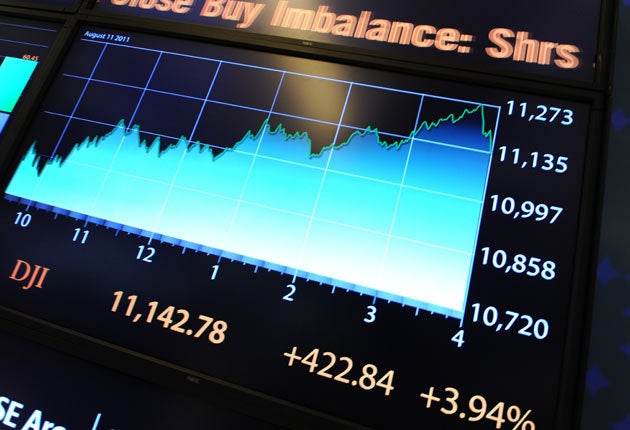The shock resignation of the top German official on the board of the European Central Bank (ECB) plunged global stock markets into fresh turmoil yesterday. The ECB announced that Jürgen Stark, the bank's chief economist, will leave his post for "personal reasons". But Mr Stark was known to have been opposed to the ECB's emergency decision to purchase €50bn (£43bn) of Spanish and Italian sovereign bonds last month.
News of the departure of Mr Stark, whose term at the ECB was not due to end until May 2014, sent a signal to markets that the European policymaking elite remains divided over how to deal with the eurozone sovereign debt crisis. The euro sank to $1.365, the lowest level since February on the news. The German stock exchange closed down more than 4 per cent. The FTSE 100 shed 2.35 per cent. And, in New York, the Dow Jones was trading 2 per cent down yesterday afternoon.
The President of the ECB, Jean-Claude Trichet, made an emotional defence of the bank's actions through the eurozone sovereign debt crisis at a press conference earlier this week, suggesting that he is feeling under increasing pressure. Mr Stark's resignation also reinforces an impression of growing German alienation from the moves by European leaders in recent months to keep the eurozone from breaking apart.
Mr Stark was not alone on the ECB board in opposing the purchase of Italian and Spanish bonds last month. He is reported to have been joined by the president of the Bundesbank, Jens Weidmann. Mr Weidmann's predecessor at the German central bank, Axel Weber, was also unhappy with the policy. Mr Weber, once seen as a successor to Mr Trichet at the ECB this year, resigned from the bank's board in April in objection to the purchase of Greek, Irish and Portuguese bonds.
The ECB was forced to buy the bonds last month because the deal agreed by eurozone leaders in July, which would allow a special European fund to perform this function, has not been ratified by national parliaments.
Greece also weighed on markets amid rumours – dismissed as "rubbish" by Athens – that it will default on its debt this weekend. About 70 per cent of its bondholders are said to have agreed to a debt swap deal.
Subscribe to Independent Premium to bookmark this article
Want to bookmark your favourite articles and stories to read or reference later? Start your Independent Premium subscription today.


Join our commenting forum
Join thought-provoking conversations, follow other Independent readers and see their replies